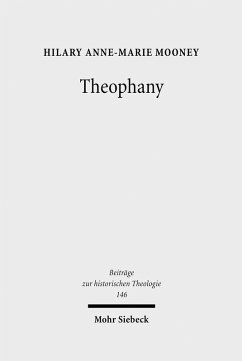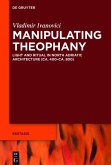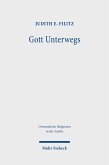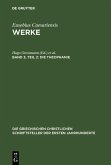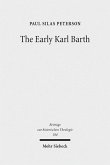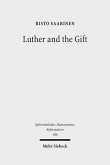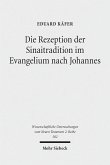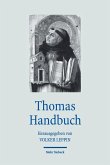Hilary Anne-Marie Mooney investigates the notion of theophany in the writings of the early medieval thinker Johannes Scottus Eriugena. She focuses on the creative impulses which he draws from the Scripture and she investigates the influence of theological and philosophical thinkers of the first six Christian centuries on Eriugena. The author considers those passages of Eriugena's writings in which the precise term 'theophany' is used as well as other passages in which the term does not occur but which are nonetheless imbued with the 'notion' of a theophanic appearing of God. These traces of theophanic understanding of the revealing of God are considered within Eriugena's oeuvre as a whole, including his biblical commentaries. In her study, the author maintains that a theophanic structure characterized by four recurring facets may be unearthed in Eriugena's theology of the revealing of God. In the various contexts within which he writes about this divine revealing (in his theology of creation, his anthropology, his account of the relationship between human beings and God as seen from the perspective of a Christian spirituality), it is the notion of theophany which he uses to illuminate the relationship between that which is created and its creator. In doing so, he bequeaths a rich theological analysis of the appearing of God to subsequent generations of theologians and shows himself to be both a coherent and creative thinker. Born 1962; studied philosophy, classical languages, and theology in Dublin; 1991 Ph.D.; 2003 Habilitation; apl. Professor at the University of Freiburg; she currently teaches at the University of Education in Schwäbisch Gmünd.
Dieser Download kann aus rechtlichen Gründen nur mit Rechnungsadresse in A, B, BG, CY, CZ, D, DK, EW, E, FIN, F, GR, HR, H, IRL, I, LT, L, LR, M, NL, PL, P, R, S, SLO, SK ausgeliefert werden.

